The English version of this text is below.
Gisteren hebben wij pizzas gebakken. Ondertussen reflecteerden we op werken als solidariteitskeuken in de maand maart. Dit zijn onze eerste reflecties en gedachtes.
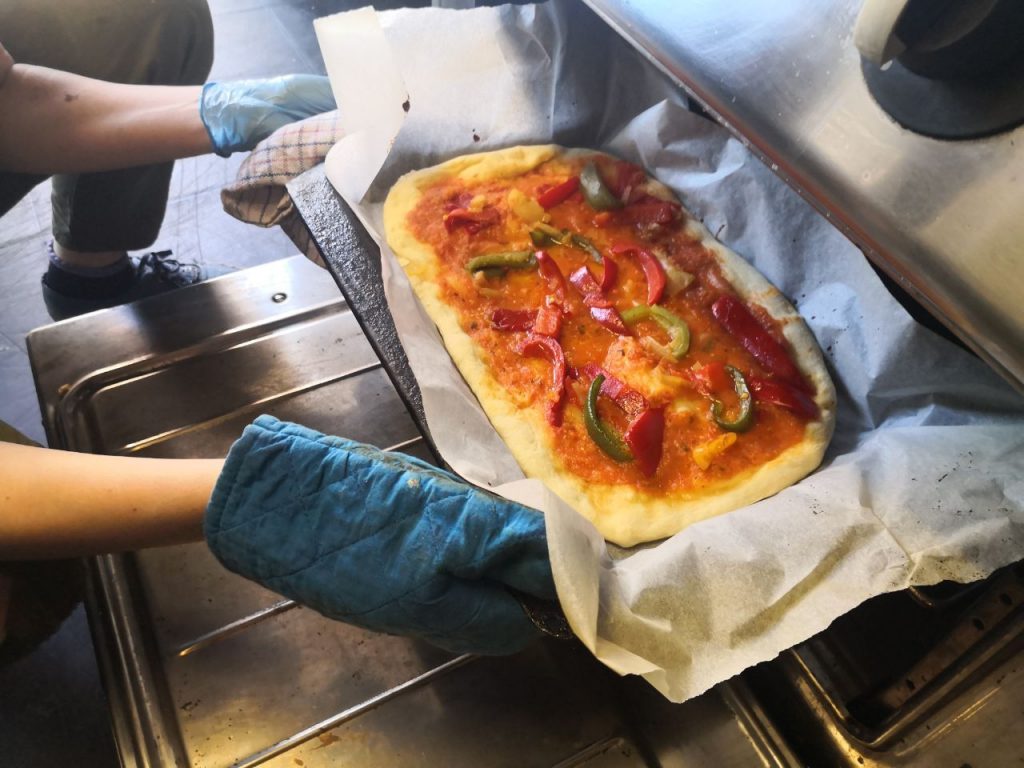
De Barricade bevindt zich in een nieuwe positie. Zoals de meesten van ons, hebben ook wij ons moeten aanpassen aan nieuwe tijden van isolatie, distantie en eenzaamheid. Jarenlang hebben wij het concept van ‘collectiviteit’ voortgezet, waaronder: collectief koken, collectief eten, collectief lezen of simpelweg samenkomen en ervaringen uitwisselen. Hiervoor gebruikten wij een grote, fysieke plek, waar velen langskwamen elke zondagavond. Door de nieuwe overheidsmaatregelen heeft onze gebruikelijke plek al een maand lang de de deuren dicht. Onze bijeenkomsten zijn verplaatst naar digitale platforms, waar wij manieren proberen te vinden om onze politieke overtuigingen voor te zetten. Daarnaast koken een paar van ons nog in de ACU keuken, maar nu onder andere omstandigheden dan hoe wij normaliter onze keukenactiviteiten zouden omschrijven en uitvoeren.
Sinds de sluiting van de horeca en het verbod op het samenkomen van grote groepen, zijn veel plekken in Utrecht gesloten. Dit zijn vooral commerciële bars, cafés en restaurants, maar ook een paar belangrijke plekken die kwetsbare groepen in Utrecht voorzag van de nodige basisbehoeftes zijn dicht. Ook het Smulhuis, een plek die elke avond een maaltijd gaf aan een grote groep mensen die niet of moeilijk toegang heeft tot goed eten, is in overleg met gemeente Utrecht dicht gegaan voor een deel van de bezoekers. Wij begrijpen de redenen hiervoor, maar zien hiernaast ook welke problemen dit met zich meebrengt. Naast dat het een kwetsbare groep mensen wederom op straat zet, zien wij weinig tot geen gemeentelijk ingrijpen hiervoor, noch enige vorm van kritische media aandacht omtrent dit probleem. In plaats van dat de gemeente haar verantwoordelijkheid oppakt in tijden van crisis, heeft het besloten haar beste joker op tafel te gooien: Nederland is een ‘participatiesamenleving’. Zoals de overheid het zou omschrijven, staat dit voor een samenleving waarin iedereen die dat kan, verantwoordelijkheid neemt voor en actief bijdraagt aan zijn of haar eigen leven en omgeving. Of zoals de critici het liever verwoorden: de ‘zoek het zelf maar uit’ samenleving.
ACU is veranderd van cultureel-politiek centrum tot solidariteitskeuken. Zeven dagen per week worden er take-away avondmaaltijden uitgedeeld voor mensen die niet of moeilijker toegang hebben tot goed eten. Elke avond maakt de keuken rond de 60 take-away dozen voor iedereen die het nodig heeft. De Barricade kookt nog altijd op zondag en geeft onder andere zelfgemaakte pizzas uit via de voordeur van het ACU. Aan de ene kant is het een fantastisch project en bewonderen we alle tijd en energie die veel vrijwilligers in de solidariteitskeuken steken. Aan de andere kant is het vreemd om plotseling deze verantwoordelijk op ons te nemen en vragen wij ons af: is dit hoe solidariteit er werkelijk uit ziet, of worden wij hier nu genoodzaakt de rotzooi van de gemeente op te ruimen? Onrechtvaardigheid is nog duidelijker in tijden van crisis, en het is nog helderder te zien waar het vooral plaats vindt en wie hier voornamelijk de dupe van is. Deze onrechtvaardigheid is niet nieuw, het is altijd al gaande geweest en wij zijn er van overtuigd dat, zolang vrijwilligers bereid zijn deze problemen maar weer op te knappen, de problematiek nooit bij de wortels zal worden aangepakt.
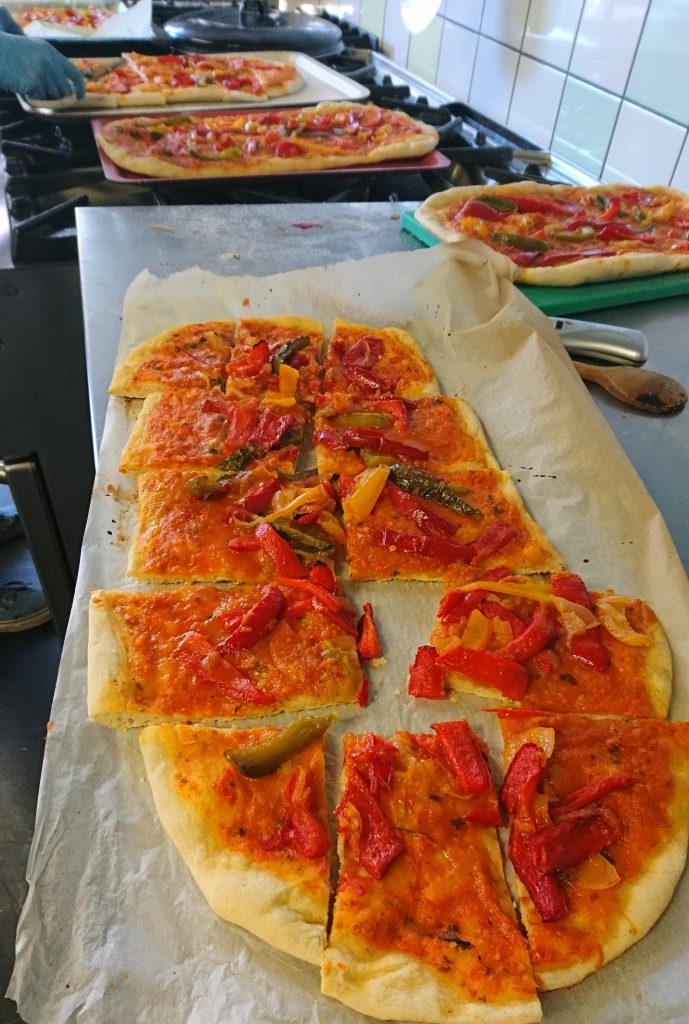
We zijn al een maand verder sinds wij onderdeel zijn geworden van een solidariteitskeuken die maaltijden uitdeelt. Al zijn wij blij nog te kunnen koken en erkennen wij het privilege dat wij nog gepermitteerd het huis uit kunnen, willen wij toch een paar contradicties uitlichten die wij afgelopen maand zijn tegengekomen. Ten eerste willen wij onderstrepen hoe afhankelijk de gemeente blijkt te zijn van vrijwilligersinzet. De gemeente verbergt zich achter een, naar hun mening, goed excuus dat zij sommige kwetsbare groepen op straat niet kunnen helpen, namelijk: door landelijk beleid is het voor de gemeente verboden deze groepen te ondersteunen. Sterker nog: zij kunnen boetes verwachten, mochten zij deze groepen wel steunen. Daarom gaat de gemeente uit van vrijwilligerswerk en inzet van individuelen om de rotzooi op te ruimen waar zij zelf ‘niet aan mogen zitten’. Als collectief vinden wij dat, in plaats van dat de gemeente uitgaat van vrijwilligerswerk en hun verantwoordelijkheid zo wegwuift, zij moet eisen dat dit landelijke beleid moet worden herzien. Zolang er instituties als gemeentes zijn, dragen zij de verantwoordelijkheid om voor iedere burger in de stad te zorgen. Wanneer de gemeente niet de moeite doet om dit waar te maken, maar voornamelijk opereert als controlerend en bureaucratisch orgaan, vragen wij ons af in hoeverre de burger werkelijk wat heeft aan dergelijke instituties.
Daarnaast heeft de solidariteitskeuken een verbazingwekkend portie media aandacht gehad. Er is niet veel gaande in deze tijd naast de projecten die mensen zijn gestart om anderen te steunen, dus wij begrijpen ook dat het oog al snel valt op de solidariteitskeuken. Zo ook stond het marketing team van gemeente Utrecht onlangs op de stoep van ACU om een promotie video te schieten over hoe ‘Utrecht verbindt in tijden van crisis’. Hun eerste vraag: ‘wat zijn de vrijwilligers hier aan het doen?’ Het antwoord: ‘wij doen het werk dat de gemeente niet oppakt, namelijk: een goede maaltijd geven aan mensen die er zelf niet of moeilijk toegang tot hebben’. Het meest ironische aspect van het interview: om vragen te krijgen van een betaald medewerker van de gemeente, over hoe wij het essentiële werk oppakken dat de gemeente niet doet, geheel onbetaald en op vrijwillige basis. Wij willen niet worden omschreven als een liefdadigheidsproject dat goed doet voor anderen; wij verrichten al vier jaar dit werk in de keuken en zo ook in tijden van crisis. Dit is geen heldendaad, dit zijn onze politieke overtuigingen die wij omzetten tot handelingen. Wij willen geen complimentjes van de gemeente. Wij willen dat de gemeente zelf verantwoordelijkheid neemt voor deze taken.
We voelden de noodzaak om deze eerste reflecties publiekelijk te delen, omdat wij vinden dat vooral in tijden van crisis het belangrijk is om licht te schijnen op de kromme en oneerlijke werkwijzen van instituties, zowel op nationaal als lokaal niveau. Wij zullen blijven koken op de zondagen, omdat wij de noodzaak inzien van de solidariteitskeuken en wij het een waardevol project vinden om te steunen. Al zullen wij werken op grond van onze principes: als een collectief geïnspireerd door wasbeertjes en anarchisme. Wij zijn niet een liefdadigheidsproject.
Pizza and Participatiesamenleving: first reflections on working as a solidarity kitchen
Yesterday we made home-made pizza. Meanwhile we reflected on participating in a solidarity kitchen project during the month of March. These are our first reflections.
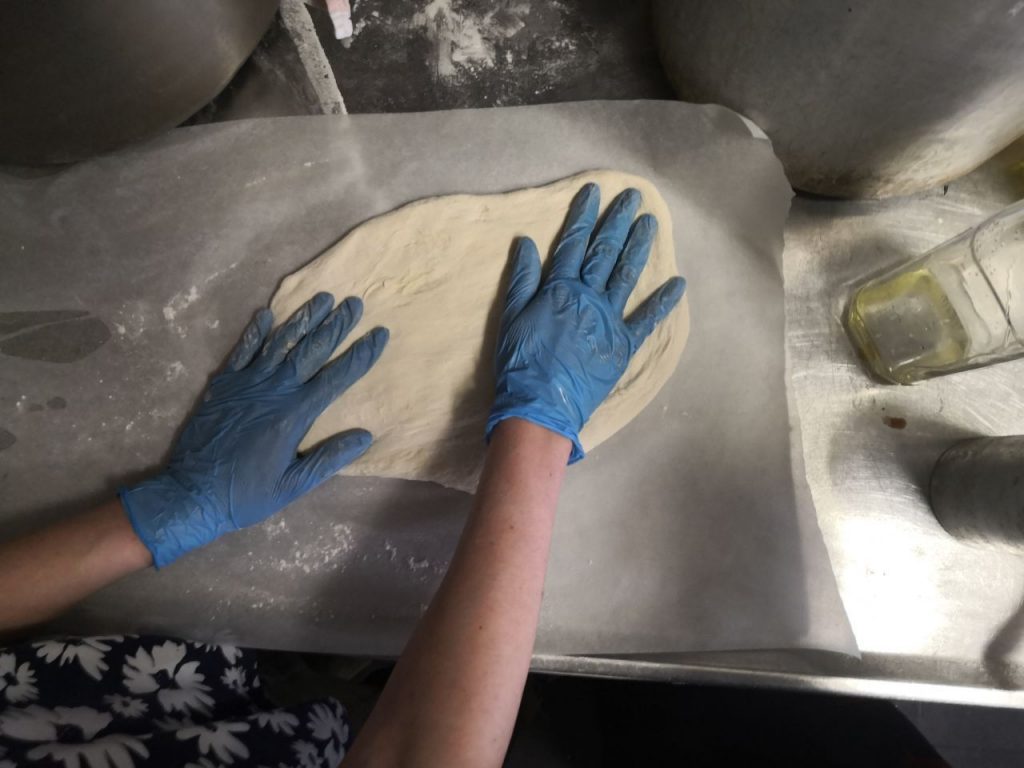
As the Barricade we found ourselves in a new situation. Like most people, we had to adapt to these new times of isolation, distancing and solitude. For many years we pushed the concept of collectivity, that is: collective cooking, collective eating, collective reading, or simply coming together and share experiences. For this we used a large physical space, where many people visited every Sunday evening. With the new governmental measures in place, our usual space has closed its doors to the public for already a month. Our meetings have moved to digital platforms, where we discuss how to still push our political standpoints. Apart from that, some of us are still cooking in the ACU kitchen, but under a different framing than how we normally describe our kitchen work.
Since the closing of horeca and the prohibition on meetings with large groups, many spaces in Utrecht have closed. These are mostly commercial bars, cafes and restaurants, but also some important spaces that provide basic needs for a more vulnerable group of people in the city. Also the Smulhuis, a space that provided dinner for people who have less access to food, has closed for part of their visitors in agreement with the gemeente (municipality of) Utrecht. We understand their reasons for closing, however, we also see what problematic effects this brings about. Next to that it leaves a group of vulnerable people out on the street, we also see little to no municipal intervenience to solve this problem, nor any critical media coverage about this situation. Instead of the municipality taking up the responsibility it should take in these times of crisis, it decided to play its best joker: the Netherlands is a ‘participatiesamenleving’ (participatory society / big society). As the government describes it, this means that everyone who has the ability to contribute socially to its surroundings, should take up this responsibility and act upon it. Or, how the critics prefer to frame this concept: ’figure it out yourself’ governing.
ACU has changed from a cultural-political centre, to a solidarity kitchen that hands out free take-away meals. It’s open 7 days a week and provides people who need food and have less access to it with a decent evening meal. Every evening, the kitchen produces around 60 take-away boxes for anyone who needs it, and we as Barricade still cook on Sunday, now handing out home-made pizza through the front door. On the one hand it’s a great project, and we fully acknowledge all the time and effort that many volunteers have put into it. On the other hand we find this sudden responsibility very questionable and wonder whether this is what solidarity looks like, or whether we are simply covering up the mess the gemeente leaves us with, out of emergency. In times of crisis, injustice becomes very clear and it’s easy to point out who mostly suffers from it. This injustice is not new, it’s been there even before the pandemic and we are sure that, as long as volunteers are willing to cover up for these problems, it will never be addressed at its very core.
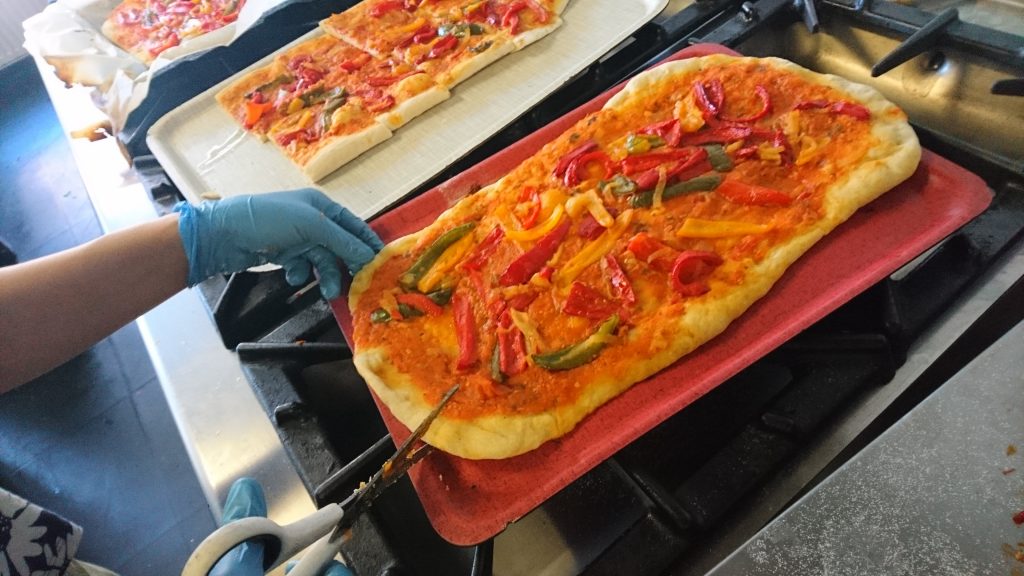
It has been a month now since we started operating as a solidarity kitchen making take-away meals and, as much as we are happy and privileged to be permitted to go out of our houses and cook, want to share some of the contradictions of the ‘participatiesamenleving’ we have encountered. First of all, we want to underline the dependency of the gemeente on volunteer based projects. The gemeente hides behind an, in their opinion, valid reason to not help certain vulnerable groups out on the streets: they are simply not allowed to do so due to national governmental regulations. If they would help these people, they will be fined. Therefore the gemeente depends upon volunteer-run groups and individuals to clean the mess they are not ‘allowed’ to clean. We as collective think that, instead of depending on volunteer work and carelessly justifying their lack of responsibility as a result of these national regulations, the gemeente should put more effort in demanding a change in these very regulations. As long as institutions such as the gemeente are still in place, they should be the ones taking care of their citizens. If the gemeente is not making the effort to do so, but now mostly operates as a controlling and bureaucratic entity, we wonder what value such institution is giving its inhabitants in the first place.
Secondly, the media attention the solidarity kitchen got was striking. As not much is going on these days apart from projects people have started to support others, we understand that attention is easily attracted. Likewise, the marketing team of gemeente Utrecht decided to show up at ACU’s front door to shoot some video material for a promotional video on how ‘Utrecht is connecting people in times of crisis’. Their first question: what are the volunteers doing here? Answer: doing the work the gemeente is not doing, which is, providing people with food who don’t have access to it. Most ironic part of the interview: being interviewed by a paid worker of the gemeente Utrecht, on how you are doing the essential work the gemeente is not doing, on unpaid, volunteer basis. We do not want to be framed as a charity that does good to others: this is something we have been doing for four years and yes, in times of crisis we are still doing this work. This is for us not a heroic act, but a political standpoint we have always been pushing for. We don’t want any compliments from the gemeente for this work, we want them do take up their responsibility themselves.
We felt the necessity to share these first reflections publicly, as we think that especially in times of crisis, it’s important to expose and criticise the unfair ways of how institutions operate, be it on national or local level. We will stay in the kitchen and continue cooking on Sundays, as we think the solidarity kitchen is a good and necessary initiative to be part of. However, we operate under our framework: as a collective inspired by raccoons and anarchism. We are not a charity.

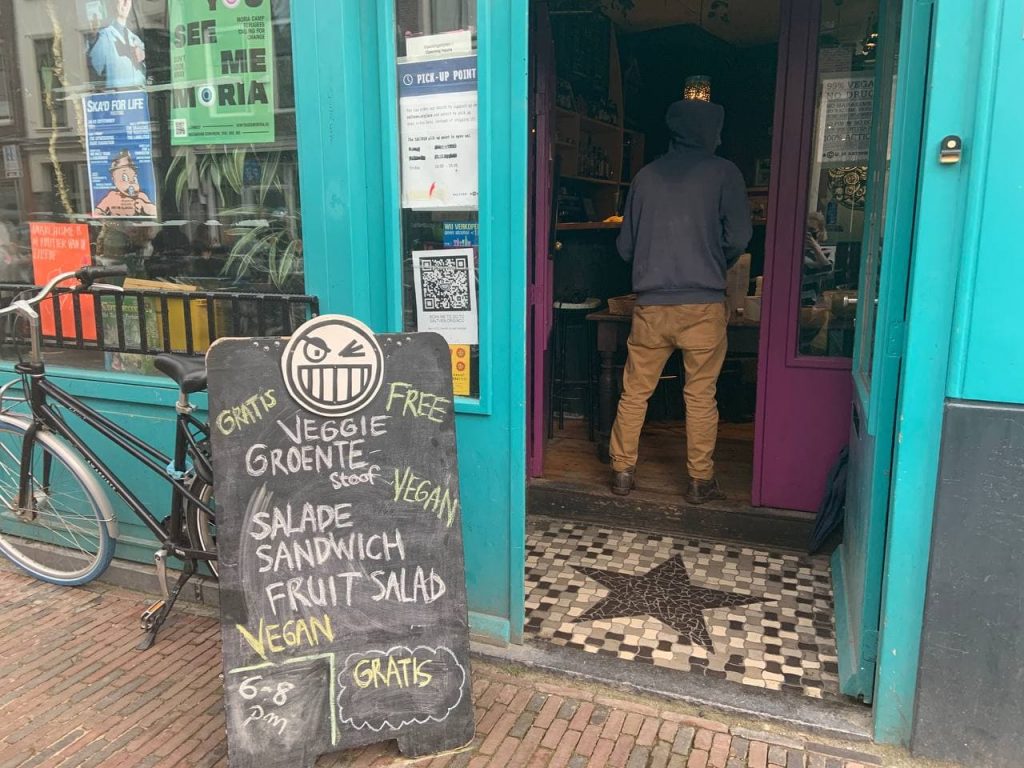
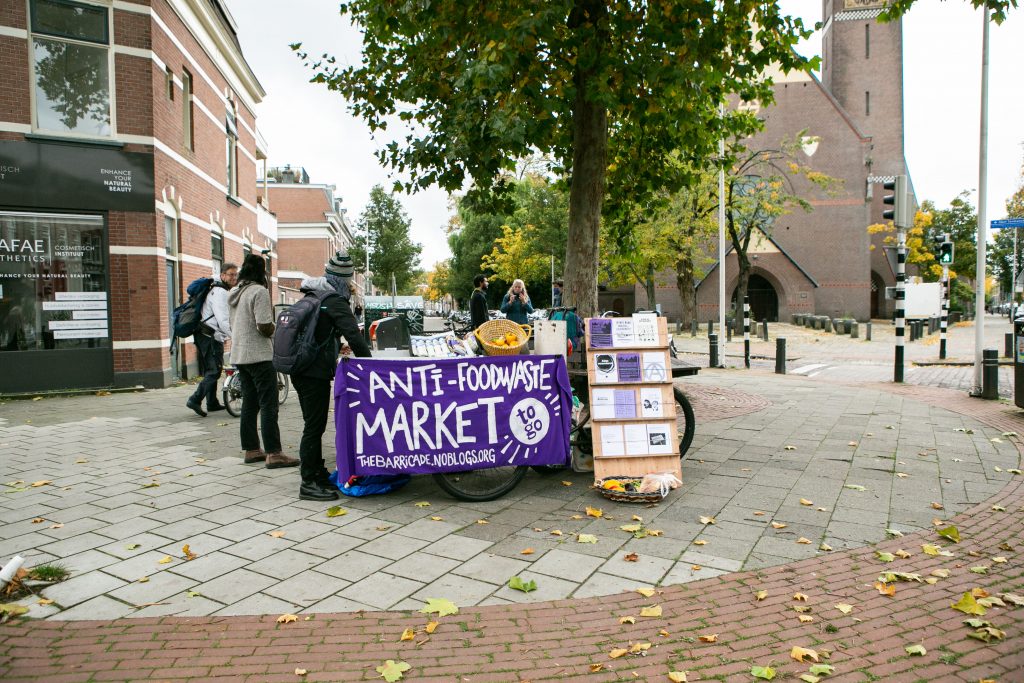
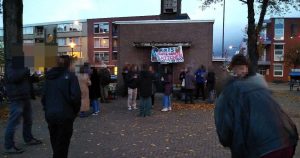
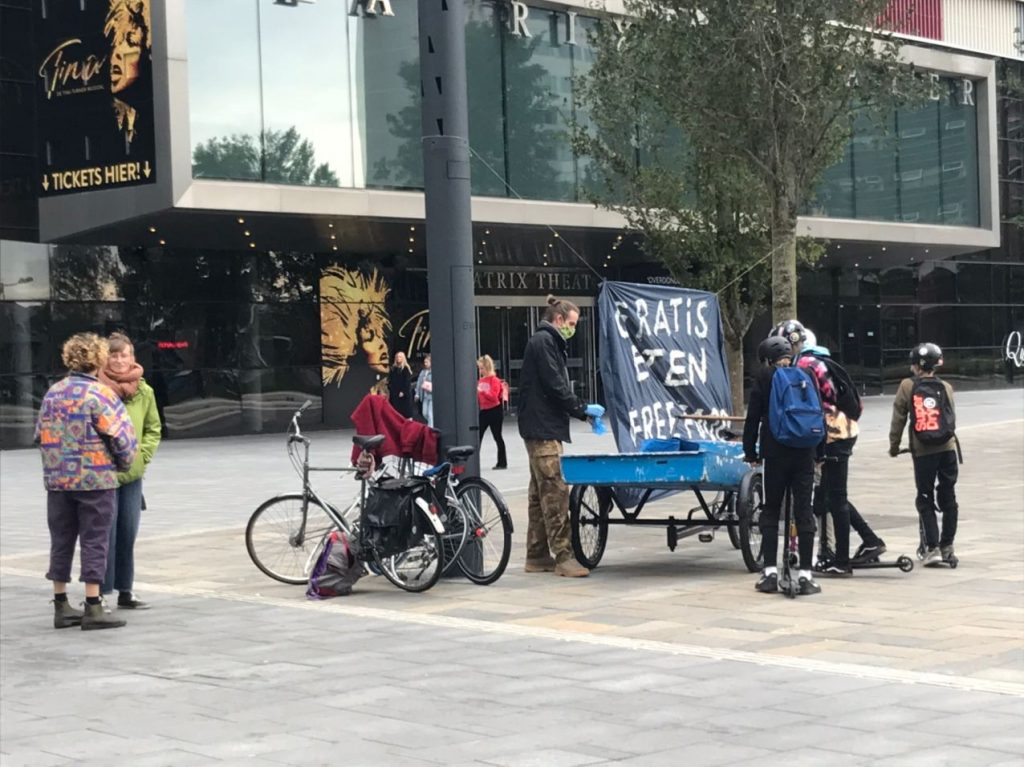
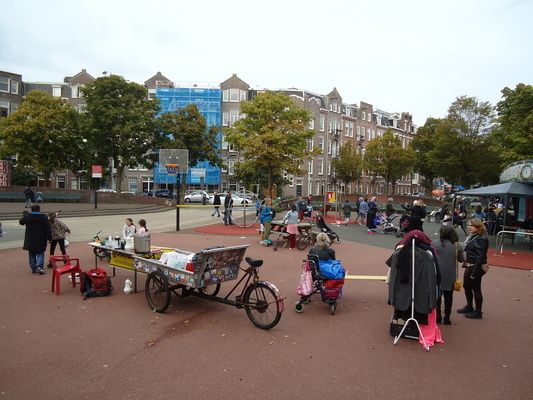
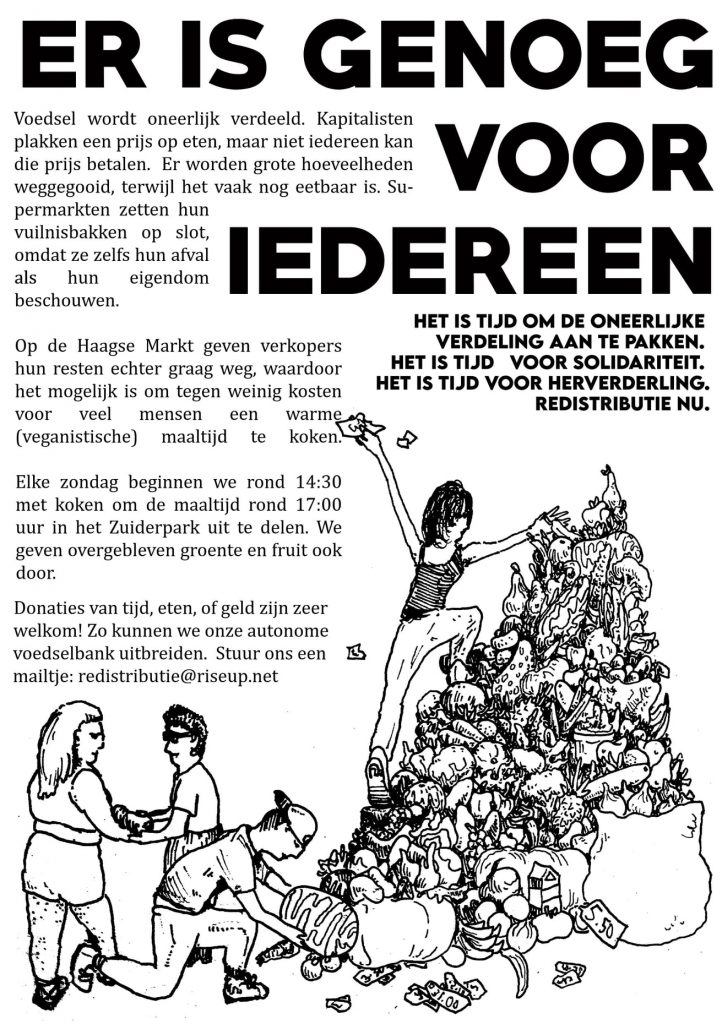
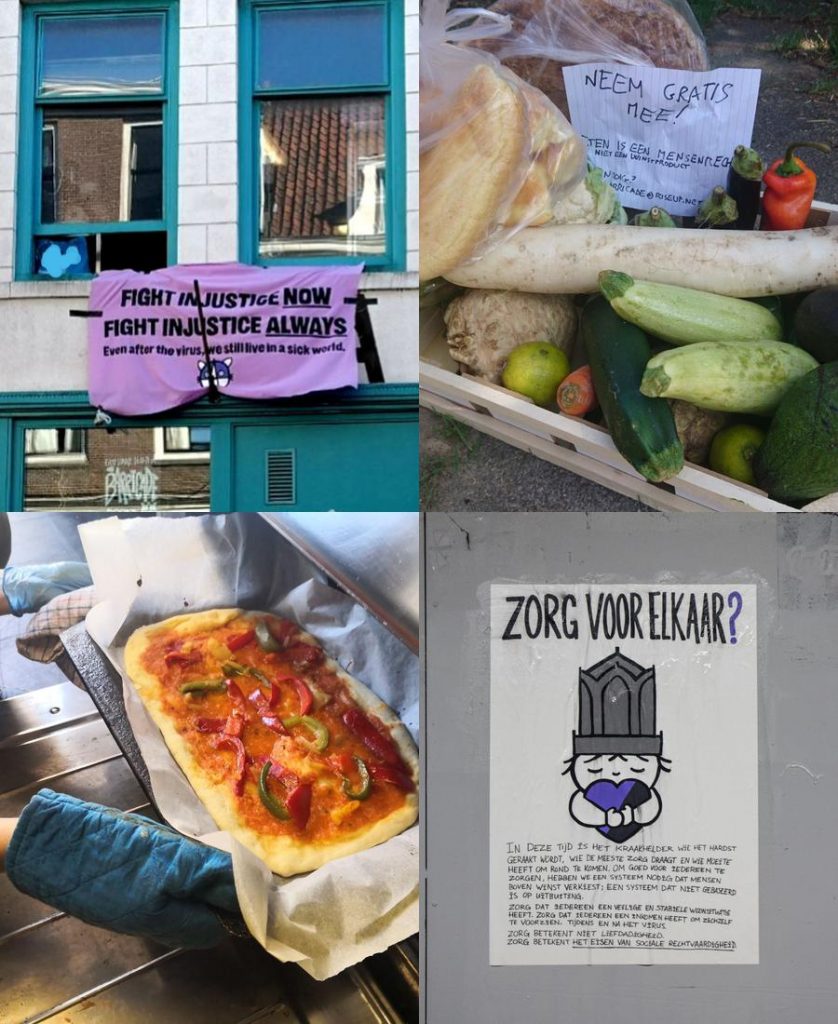
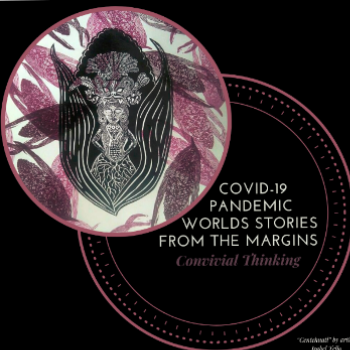
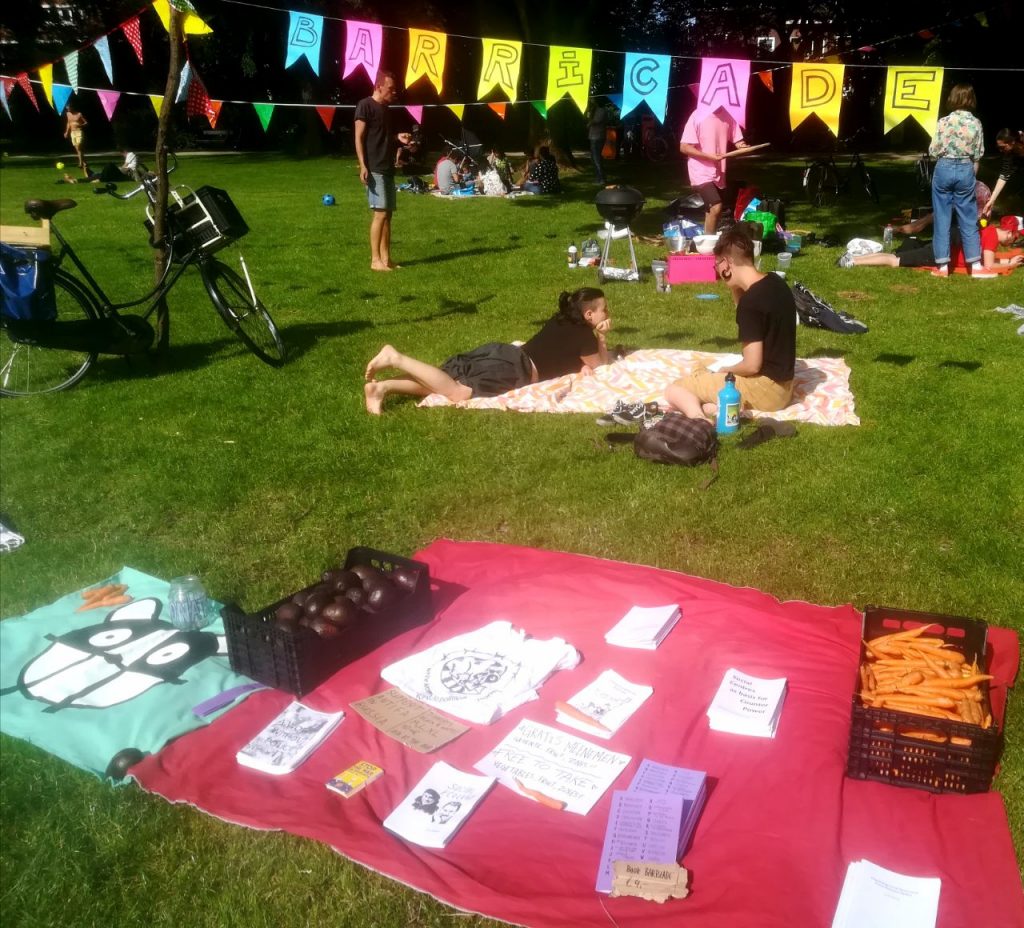
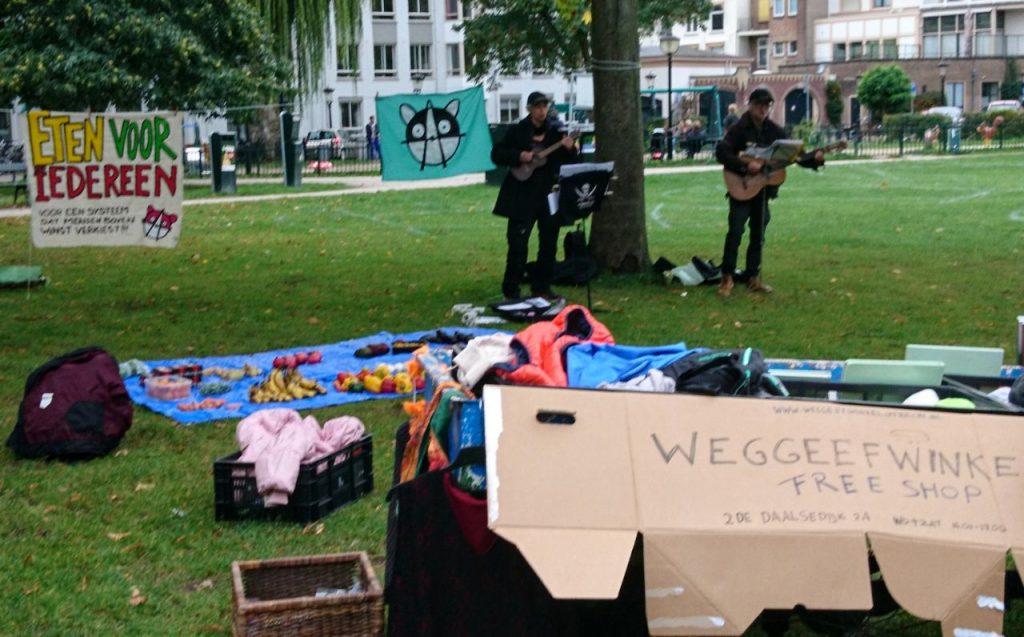
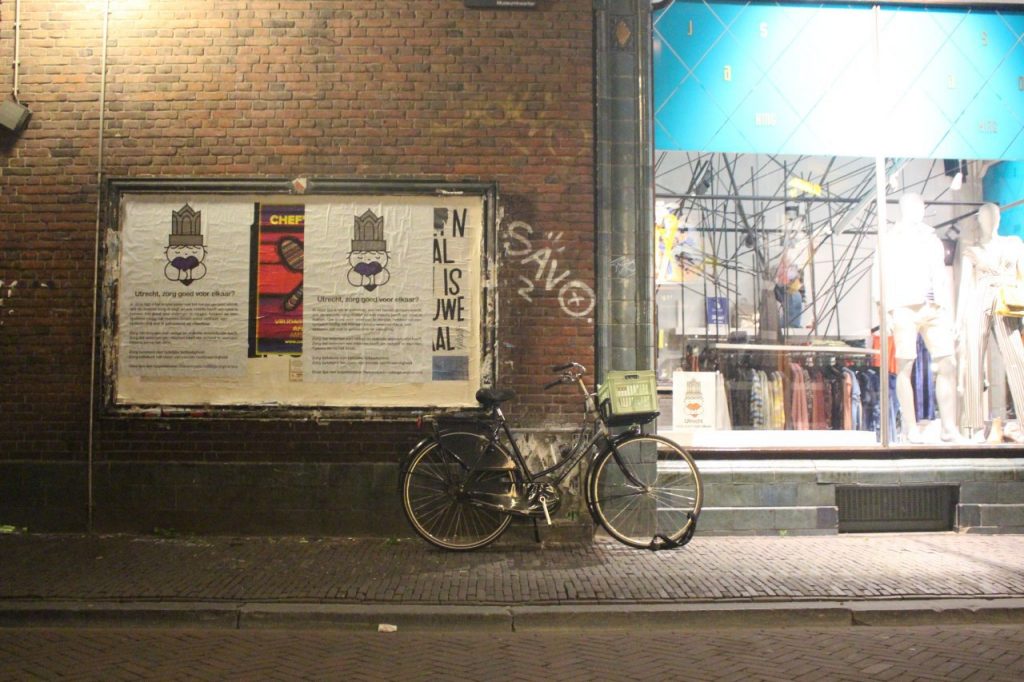
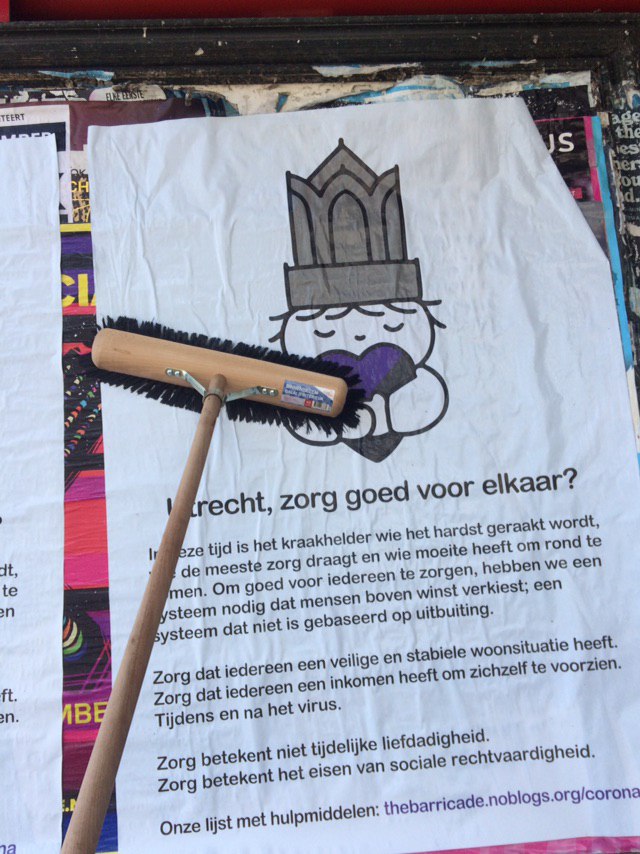
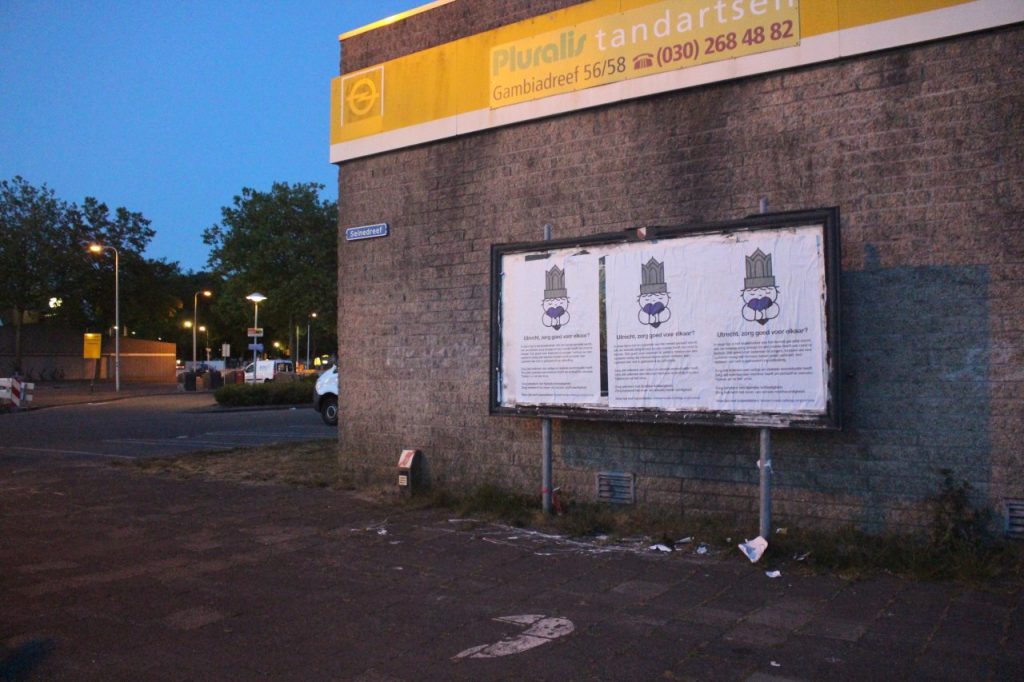
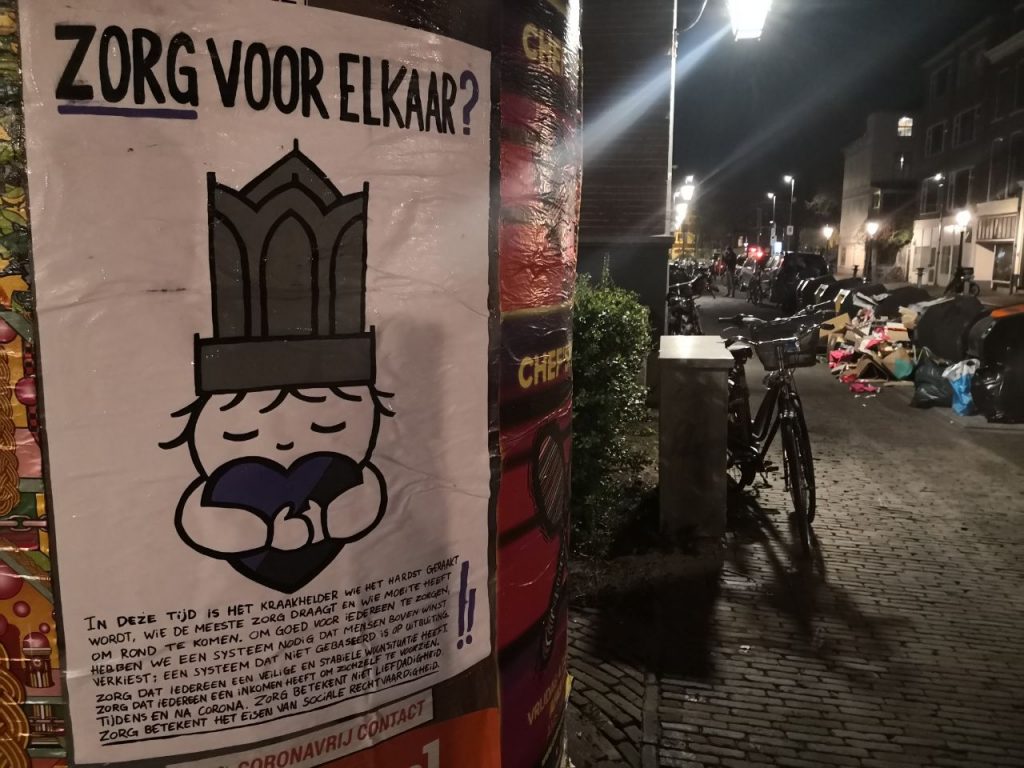
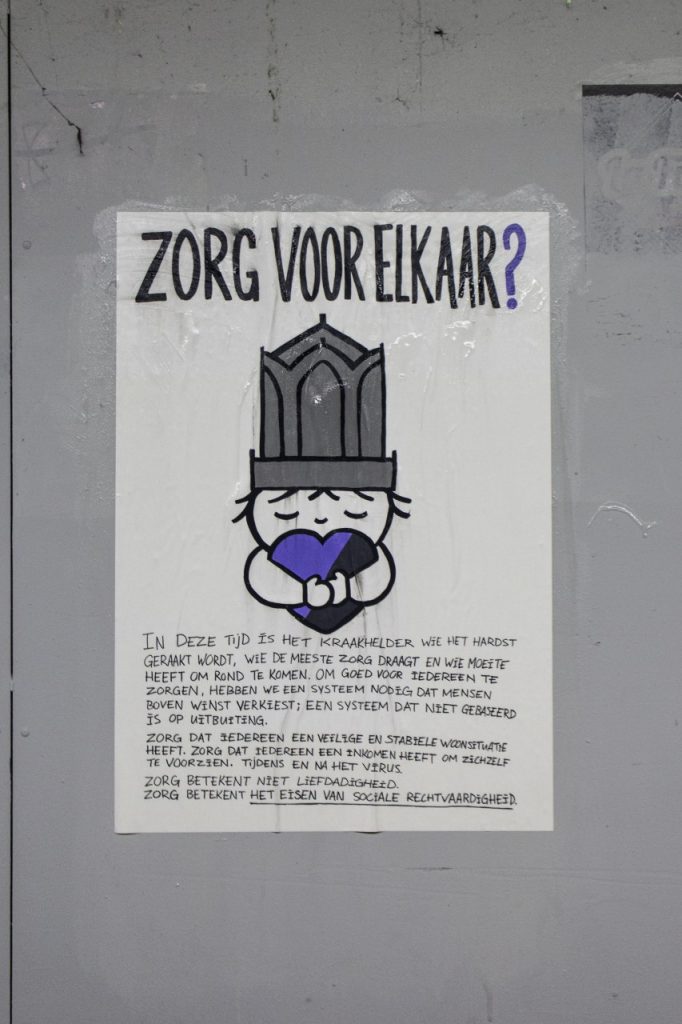
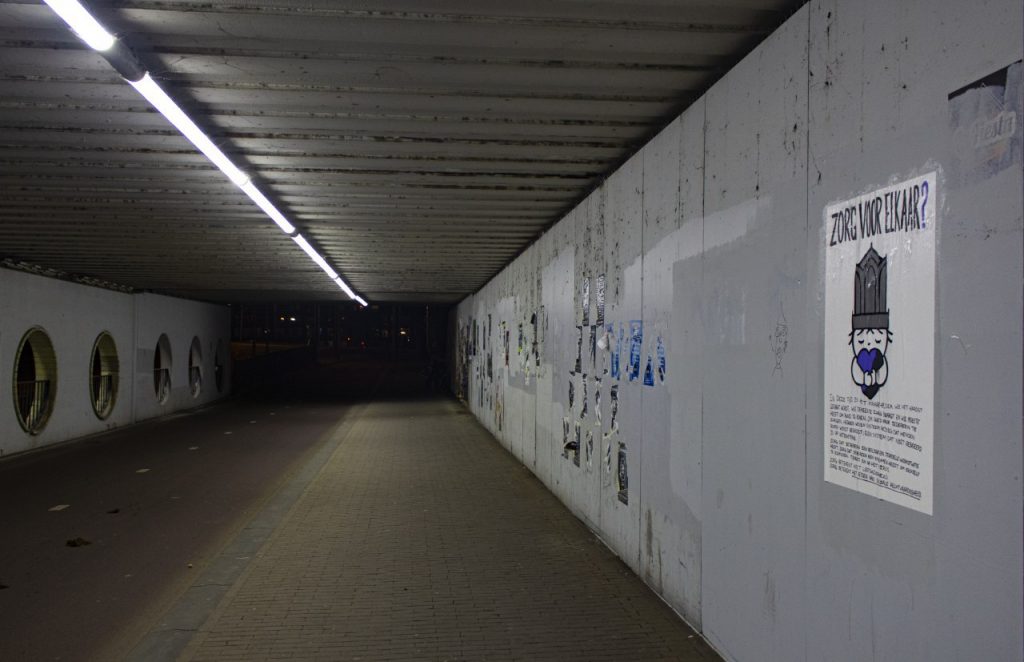




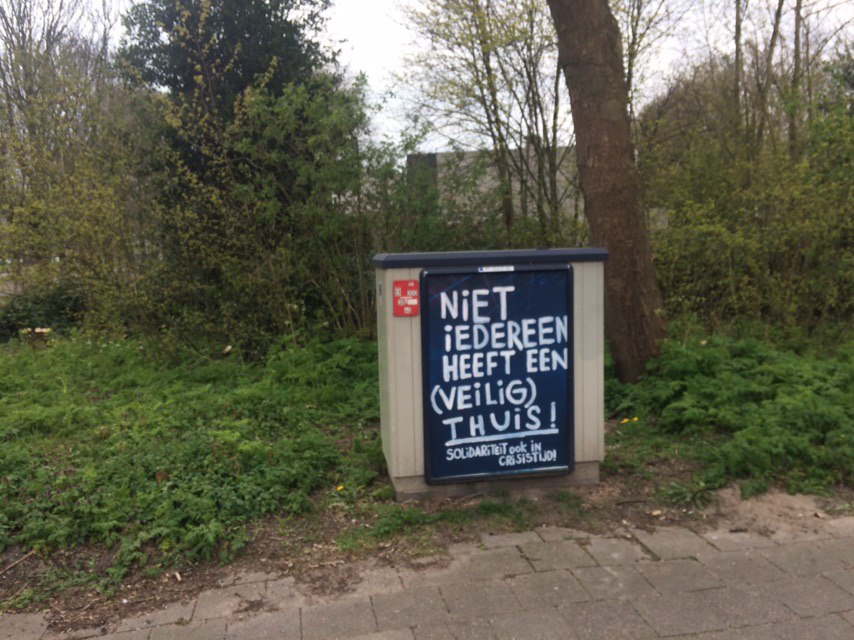 At the start, people expressed their feelings of going back and forth between the need of acting and apathy or despair towards the situation. Some of the issues contributing to people feeling down were the realization that this situation will last for long, and that therefore a lot of things people were looking forward to were not going to happen in the end, and of course the lack of interpersonal contact. Someone also mentioned the feeling of being overflown with too many broad political analyses without the possibility of directly acting on stuff. On the other hand some people had also some positive feelings mostly about perceiving that people are starting to act and still pushing for a radical leftist point of view.
At the start, people expressed their feelings of going back and forth between the need of acting and apathy or despair towards the situation. Some of the issues contributing to people feeling down were the realization that this situation will last for long, and that therefore a lot of things people were looking forward to were not going to happen in the end, and of course the lack of interpersonal contact. Someone also mentioned the feeling of being overflown with too many broad political analyses without the possibility of directly acting on stuff. On the other hand some people had also some positive feelings mostly about perceiving that people are starting to act and still pushing for a radical leftist point of view.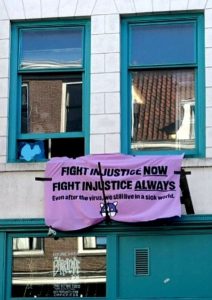 Yesterday we had an online assembly to discuss together the current situation of the Corona-crisis in the Netherlands, how this is affecting us and other people around and what we can still do.
Yesterday we had an online assembly to discuss together the current situation of the Corona-crisis in the Netherlands, how this is affecting us and other people around and what we can still do.